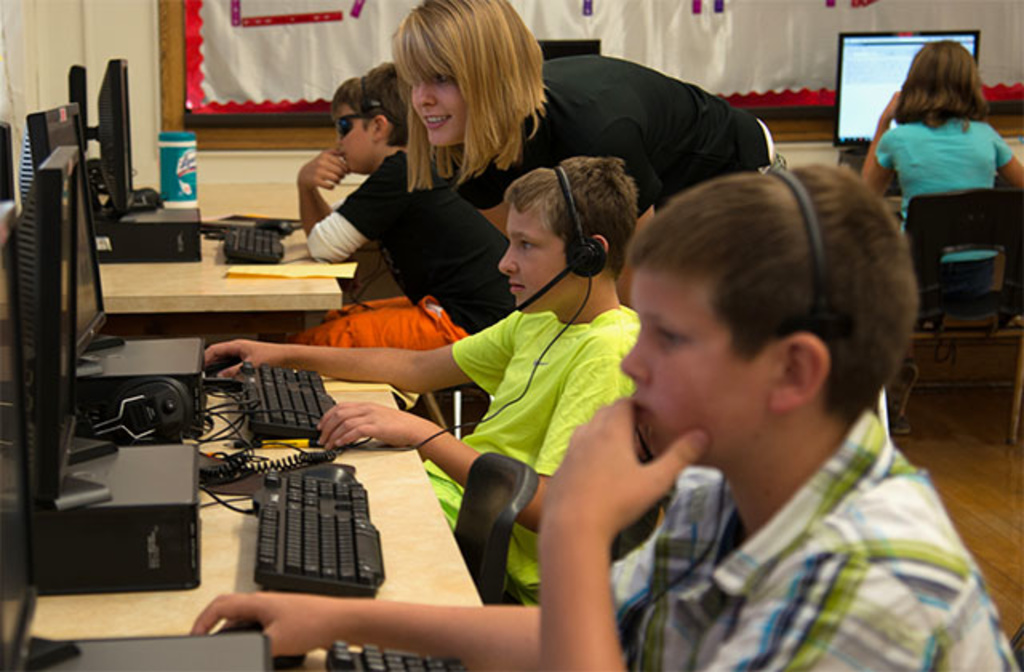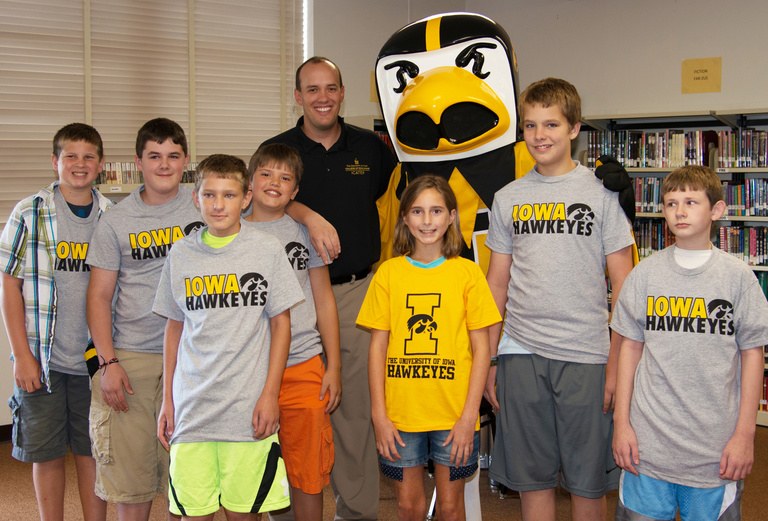
Leesa Jaeger had a unique problem with her son, Jason, this summer. The soon-to-be seventh grader was too excited to get to a technology camp led by University of Iowa staff at Cedar Rapids’ Roosevelt Middle School last week.
“He really likes it,” Jaeger says. “He’s ready to go at 8 o’clock every morning and I have to tell him, no, not yet.”
Jason was one of seven Roosevelt students selected to participate in a three-day camp to introduce them to tools available in a new assistive technology lab at their school. The camp was led by staff from the University of Iowa College of Education’s Iowa Center for Assistive Technology Education and Research (ICATER). The lab features programs such as Dragon Naturally Speaking and Snap&Read, which will help students be successful in reading and writing.
ICATER is partnering with the school to build the unique assistive technology lab to make these learning tools available to all students in the building when school starts this week. The campers, who celebrated the end of their three-day camp by meeting Herky and showing him their accomplishments in the lab, got a sneak peek at the tools.
Roosevelt Principal Autumn Pino says these seven students will serve as a core group she and other project leaders can track to gauge the lab’s success in enhancing learning.
“What I hope for all students is we are matching their needs,” says Pino. “What I love about the lab is how it empowers students to be self-advocates and provides them with the right tools to reach their full potential and be successful.”
Pino says she was inspired to create the lab in part by attending an ICATER seminar last year with four others from her school. She’s invited ICATER staff to visit her school on other occasions to train her staff and says learning about assistive technology with help from ICATER was an important first step toward creating the lab.
“I had the concept in mind, but I knew it was important that I had a deeper knowledge and a lot of my own growth and learning to do,” Pino says.
James R. Stachowiak, associate director of ICATER, has served as a resource to Pino as she gets her new lab running. He says the lab is unique and something he hopes other schools notice.
“This is definitely cutting edge—I don’t know of any other school in the state that has a lab dedicated to assistive technology like this, where kids who struggle with reading or writing can come in on their own,” Stachowiak says. “Typically, the issues are solved on a per student basis. Principal Pino is taking a whole new approach and making it available to so many kids.”
Stachowiak says he was pleased with what he saw at the three-day camp.
“It’s been great to get these kids a little head start using the technology in a fun camp setting and allow them to have success without some of the pressure of school,” he says. “I’ve seen them come a long way in three days. I think it’s going to really help them as the year goes on.”

Stachowiak says he and others from ICATER will continue to be involved as advisors and supporters of the lab, making frequent visits to Roosevelt throughout the school year.
“We want this lab to succeed so it can be a model we promote to other schools.”